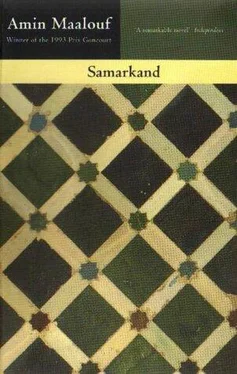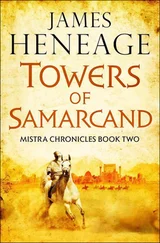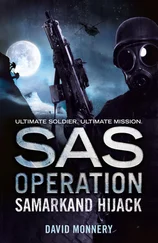As to the fate of the Manuscript , which was her purpose in writing to me, Shireen informed me in rather terse terms: ‘It was in fact amongst the murderer’s belongings. It is now with me. You may consult it at your leisure when you return to Persia.’
Return to Persia, where I had aroused so many suspicions?
I had retained from my Persian adventure nothing but cravings. It had taken me one month to get to Teheran and three months to get out. I had spent a few days, which were both brief and numb, in its streets, having hardly had the time to breathe in the smells, or to get to know or see anything. Too many images were still calling me toward the forbidden land: my proud kalyan smoker’s sluggishness, lording it over the whisps of smoke rising from the charcoal in the copper holders; my hand closing around Shireen’s, a promise; my lips on breasts chastely offered by my mother of an evening and more than anything else, the Manuscript which awaited me lying in its guardian’s arms with its pages open.
To those who may never have contracted the obsession with the Orient, I scarcely dare mention that on Saturday at dusk I took myself out for a walk on a stretch of the Annapolis beach that I knew would be deserted, wearing a pair of Turkish slippers, my Persian robe and a lambskin kulah hat. There was no one on the beach, and immersed in my daydreams on my way back I made a detour via Compromise Road which was not at all quiet. ‘Good evening Mr Lesage,’ ‘Have a nice walk. Mr Lesage.’ ‘Good evening Mrs Baymaster, Miss Highchurch,’ the greetings rang out, ‘Good evening Reverend.’ It was the pastor’s raised eyebrows which brought me back to myself. I stopped dead in order to look contritely at myself from my chest to my feet, to feel my headgear and hurry on my way. I think I even ran, draped in my aba as if to cover my nakedness. Once home I tore off my attire, rolled it up with a gesture of finality and then tossed it angrily to the back of a broom cupboard.
I was on my guard not to do the same again, but that one walk had labelled me an eccentric — a label which doubtless would be with me for life. In England eccentrics have always been viewed sympathetically or even admiringly, as long as they had the excuse of being rich. America, in those years, was hardly ready for such behaviour; the country was approaching the turn of the century with a certain prudish reticence — perhaps not in New York or San Francisco, but certainly in my town. A French mother and a Persian hat — that was far too exotic for Annapolis.
That was the dark side, but my moment of folly also had its bright moments. It won me, on the spot, an undeserved reputation as a great explorer of the Orient. The director of the local newspaper, Matthias Webb, who had got wind of my walk, suggested that I write an article about my experience in Persia.
The last time that the name of Persia had been printed on the pages of the Annapolis Gazette and Herald was back to 1856, I believe, when a transatlantic liner, which was the pride of Cunard and the first ever metal-framed paddle-boat, collided with an iceberg. Seven sailors from our county perished. The unfortunate ship was called the Persia.
Sea-faring people do not play games with the signs of destiny. I also thought it necessary to remark in the introduction to my article that the term ‘Persia’ was incorrect, and that the Persians themselves called their country ‘Iran’ which was an abbreviation of a very ancient expression ‘Aïrania Vaedja’, meaning ‘Land of the Aryans’.
I then mentioned Omar Khayyam, the only Persian that most of my readers might have heard of, quoting one of his quatrains which was imbued with a deep scepticism. ‘Paradise and Hell. Might someone have visited these unique regions?’ It provided a useful preamble before I expounded over the course of some dense paragraphs on the numerous religions which, since the dawn of time, have prospered on Persian soil, such as Zoroastrianism, Manicheism, Sunni and Shiite Islam, Hassan Sabbah’s Ismaili variant and nearer our time, the babis , the sheikhis and the bahais. I did not omit to mentioned that our word ‘paradise’ comes originally from the Persian word ‘paradaeza’ which means ‘garden’.
Matthias Webb congratulated me on my apparent erudition, but when I become encouraged by his praise and suggested making a more regular contribution he seemed embarrassed and suddenly irritated.
‘I really would like to put you to the test, if you will promise to drop this annoying habit of peppering your text with barbarian words!’
My face betrayed my surprise and incredulity. Webb had his reasons.
‘The Gazette does not have the means to take on, permanently, a Persian specialist. However, if you agree to take charge of all the foreign news, and if you think you are capable of making distant countries accessible to our compatriots, there is a place for you on this newspaper. What your articles lose in profundity they will gain in range.’
We both managed to smile again; he offered me a peace cigar before continuing:
‘Just yesterday, abroad did not exist for us. The Orient stopped at Cape Cod. Now suddenly, under the pretext of the end of one century and the start of another, our peaceful city has been laid hold of by the world’s troubles.’
I must point out that our discussion was taking place in 1899, a little after the Spanish-American war which took our troops not only to Cuba and Puerto Rico but also the Philippines. Never before had the United States exercised its authority so far from its shores. Our victory over the dilapidated Spanish empire had cost us only two thousand four hundred dead, but in Annapolis, seat of the Naval Academy, every loss could have been that of a relative, a friend or an actual or potential fiancé; the most conservative of my fellow citizens saw in President MacKinley a dangerous adventurer.
That was not Webb’s opinion at all, but he had to pander to his readers’ phobias. To get the point over to me, this serious and greying pater-familias stood up, uttered a roar, pulled a hilarious face and curled his fingers up as if they were the claws of a monster.
‘The tough world outside is striding towards Annapolis, and your mission, Benjamin Lesage, is to reassure your compatriots.’
It was a heavy responsibility, of which I acquitted myself without too much ado. My sources of information were articles in newspapers from Paris, London and of course New York, Washington and Baltimore. Out of everything I wrote about the Boer War, the 1904-5 conflict between the Tsar and the Mikado or the troubles in Russia, I am afraid that not a single line deserves to go down in history.
It was only on the subject of Persia that my career as a journalist can be mentioned. I am proud to say that the Gazette was the first American newspaper to foresee the explosion which was going to take place and news of which was going to occupy much column space in the last months of 1906 in all the world’s newspapers. For the first, and probably the last, time articles from the Annapolis Gazette and Herald were quoted, often even reproduced verbatim in more than sixty newspapers in the South and on the East Coast.
My town and newspaper owe that much to me. And I owe it to Shireen. It was in fact thanks to her, and not to my meagre experience in Persia that I was able to understand the full extent of the events which were brewing.
I had not received anything from my princess for over seven years. If she owed me a response on the matter of the Manuscript , she had supplied me with one which was frustrating but precise. I did not expect to hear anything more from her, which does not mean that I was not hoping to. With every mail delivery the idea ran through my mind and I looked over the envelopes for her handwriting, for a stamp with Persian writing, a number five which was shaped like a heart. I did not dread my daily disappointment, but experienced it as a homage to dreams which were still haunting me.
Читать дальше












